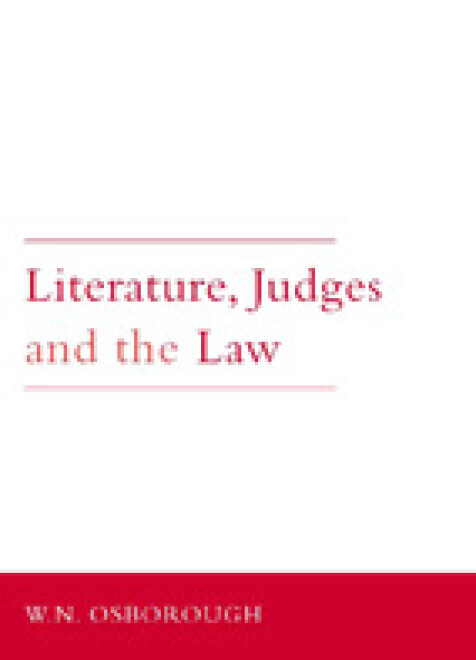Literature, Judges and the Law
W.N. Osborough
‘Nial Osborough is to be warmly applauded for his excellent new book. It is a delightful collection of easily read passages on judges’ use of literary citation in the course of giving written judgments. It is beautifully structured, so as to allow the reader to adopt a comprehensive or thematic approach or simply to pick it up from time to time and read a short excerpt on a series of cases with the same literary theme … Osborough shows that the use of literary references in judgments serves to achieve what law cannot – the clearest expression of the idea at hand’, Jennifer Carroll, Law Society Gazette (June 2008).
‘In his preface to this rather unusual but delightfully interesting volume, the author, W.N. Osborough, emeritus professor of law, University College Dublin, informs his readers that ‘it would have to be conceded that most judgments do not make palatable reading; but that ‘from time to time, however, mercifully, it is different’(p. vii) … [this is] a very scholarly yet always lively compendium wherein he discusses written decisions that are both entertaining to read and underscore in a novel way the very close ties between the two fields of literature and law, two fields steeped in traditions of narrative interpretation … Readers are struck throughout this volume by the unusual aptness of many of the literary allusions employed by various judges in their writing … Literature, judges and the law has been meticulously researched and includes an excellent bibliography, table of cases, table of statues, and a useful index. It is a delightful read and a rich source of further study by law and literature scholars', L.K. Penrod, The Law Quarterly Review (January 2010).
‘Osborough explores the use of literary quotation and allusion in legal judgments within the tradition of Common Law. He hopes that lawyers and law students, normally the only ones to read judgments, will find judgments and judicial extracts they were not aware of before; and that non-lawyers will learn something about how members of the judiciary go about the business of preparing judgments’, Book News (August 2008).

